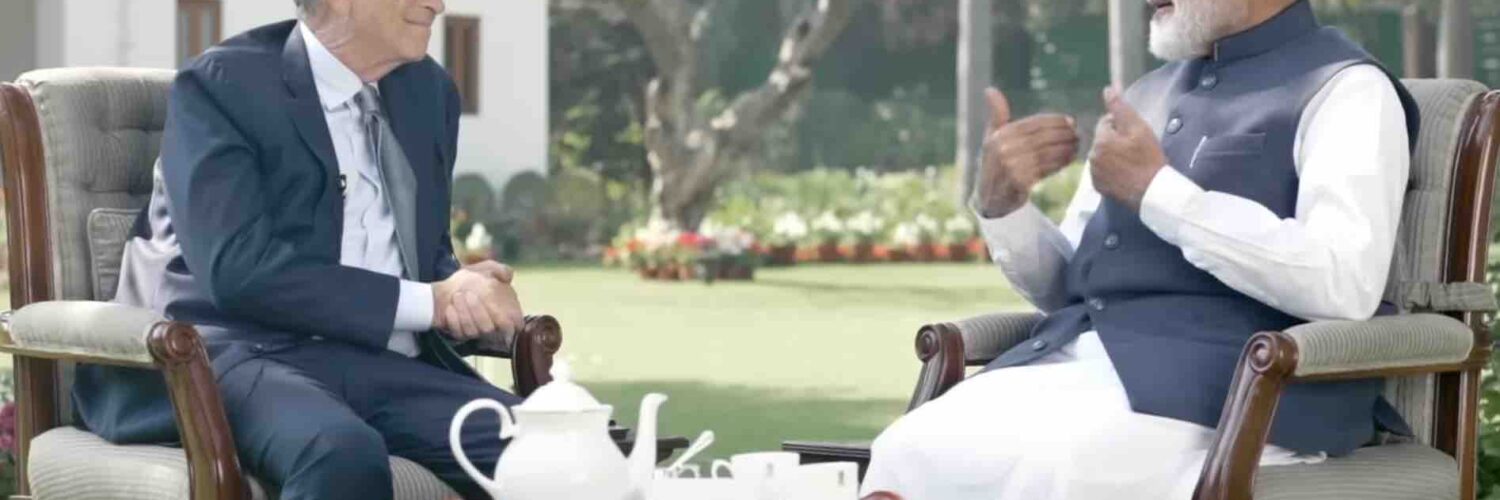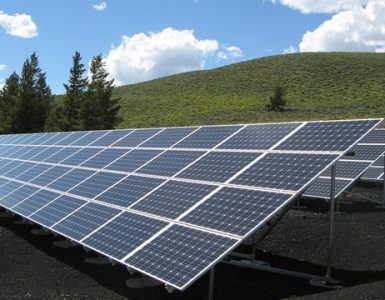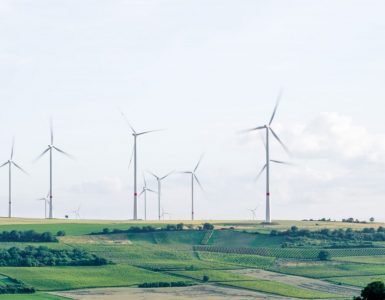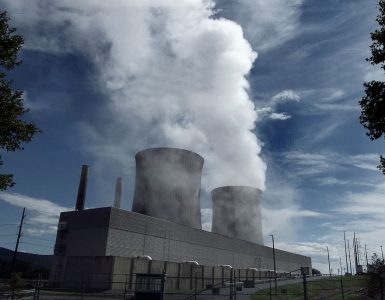While it is common for the head of state to converse with business leaders, not every conversation is publicized.
So, when Indian Prime Minister (PM) Narendra Modi and Microsoft co-founder Bill Gates’s conversation was released to the public, it was bound to catch attention. The conversation happened at the India PM’s official residence and covered artificial intelligence, digital public infrastructure, health, social initiatives, and climate.
The exchange started with the Prime Minister and Bill Gates sharing their perspectives about the G20 Summit and the role of digital infrastructure in implementing government initiatives in areas such as health, education, women’s empowerment, and agriculture.
The discussion then steered to Artificial intelligence (AI), where Prime Minister Modi shared his views about the technology and how it should be relevant to the common man. They also discussed the challenges associated with technologies, like misuse of AI, deep fake, data security, and data privacy.
However, as you know, Change Started deals with environmental issues, so we will keep our focus on that. Interestingly, about ten minutes out of forty-five minutes of the conversation that was released on YouTube focussed on climate-related aspects, ranging from lifestyle changes to Green GDP.
Prime Minister Modi mentioned how his perspectives on climate align with Bill Gates. They reflected on their meeting at the Paris Climate Conference, where both these gentlemen, along with US President Barack Obama and French President François Hollande, met and discussed climate issues
India’s Initiatives on Sustainable Energy
Narendra Modi cited the rapid progress India is making in the renewable energy sector, such as solar and wind energy, and aspired to make similar progress in nuclear power.
The Prime Minister also noted advancements in green hydrogen, including the launch of a Hydrogen-powered boat in Tamil Nadu. He expressed his desire to employ this environment-friendly boat to ferry tourists between India’s spiritual centers, Kashi and Ayodhya.
He emphasized environment-friendly practices like reuse and recycling, ingrained in Indians. To demonstrate this, he brought Bill Gates’s attention to his jacket, which was made with recycled materials, such as scrap garments, old clothes, and discarded plastic bottles.
Approach to meet Climate Goals
When Bill Gates pointed to the global rise in temperatures, our inability to meet climate goals, and the challenges associated with climate adaptations, Modi suggested a two-pronged strategy:
First, he stressed innovation, which is directed towards addressing our requirements in an environment-friendly and climate-friendly manner. To meet this goal, Modi mentioned Rs 1 lakh crore (~US$12 billion) budgetary allocation to give interest-free loans for up to 50 years to support the youth involved in research and development of futuristic technologies.
Second, he mentioned lifestyle changes and a mission lifestyle for the environment, which his government has initiated. If we don’t live by following a climate-friendly lifestyle, no innovation or external effort can help us fight climate change alone.
Concept of Green GDP
The most interesting aspect of the interaction was when Narendra Modi mentioned the need to alter the parameters that define the country’s economic progress. We have to move away from the traditional definition of growth and progress. Currently, the nation’s progress measures are intuitively anti-climate as they include metrics like power consumption and steel consumption. Instead, there is a need to use new terminologies like green GDP and green employment as the markers of a nation’s progress.
Promotion of millet as a superfood
When Bill Gates prompted him to talk about how reducing meat and chicken consumption can be good for the environment, Modi talked about making improvements in vegetarian diet food.
Prime Minister underscores the health benefits and sustainability aspects of millet cultivation, as it needs less water, is climate-resilient, requires no fertilizers, and is highly nutritious.
Given this, millet has become a popular and fashionable choice. The wide availability of millet products in the market, including at 5-star hotels, has a positive impact on improving the livelihoods of small farmers.
Wrapping Up
It was fascinating to hear a free-wheeling discussion between two self-made leaders talking on various subjects and their focus on addressing issues related to climate change.
The concept of Green GDP and lifestyle changes must be seriously considered to solve our climate woes, and we hope this chat between Narendra Modi and Bill Gates will enable a more comprehensive conversation.






Add comment